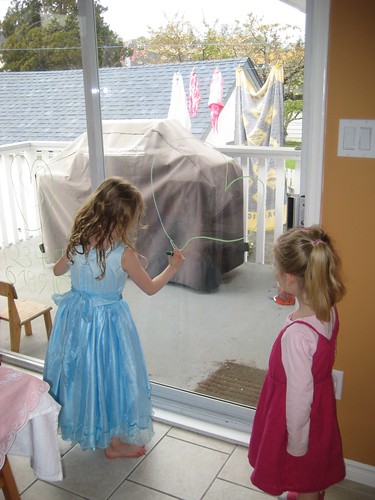There are lots and lots of things that need attention in our cities and counties, starting with, but by no means limited to, infrastructure. Labor and raw materials are relatively cheap due to the recession, and interest rates will never be lower, so why don't we hire people to do what needs to be done?:
Obama should follow in FDR's footsteps, by Nick Taylor, Commentary, LA Times: As President Obama weighs his options for adding jobs and pumping up the economy ... he might look back for guidance to Franklin Roosevelt.Indeed, Obama's experience so far resembles FDR's first uneven stabs at job creation. Roosevelt accepted the Democratic nomination in 1932... When he took office, with the unemployment rate at 24.9%, he created the Civilian Conservation Corps... But it was too limited... The "CCC boys" ... never numbered more than 300,000... Roosevelt continued his efforts with the Federal Emergency Relief Administration..., it put 2 million people to work by the fall of 1933...These efforts still left far too many people out of jobs. As winter approached, relief administrator Harry Hopkins persuaded Roosevelt to create a temporary jobs program that would give the private economy a few more months to pick up steam. The Civil Works Administration put more than 4 million workers into jobs during the winter of 1933-34. They mostly repaired roads, parks and public buildings, but there were jobs for teachers and other white-collar workers too.The CWA ended, as designed, after just five months. But unemployment remained unacceptably high. Like Obama today, Roosevelt had midterm elections to think about. His critics accused him of socialism and fretted publicly that large deficits would ruin the country. They insisted that workers would ... never be weaned off the government's largesse.But despite his vocal opponents, in January 1935, FDR announced his intention to launch the massive jobs program that became the Works Progress Administration. ... The WPA addressed a range of long-standing infrastructure needs, including roads and bridges, hospitals and water treatment plants, and airports. Its workers fought floods and forest fires and cleaned up after hurricanes. Its sewing rooms made clothing and blankets that went out to disaster victims. The WPA also employed nurses, doctors, teachers, librarians and artists. By the fall of 1936, 3.3 million people were on the WPA payroll. The stimulus provided by those jobs buoyed the economy. By the spring of 1937, after Roosevelt's landslide reelection, the country's unemployment rate had dropped to 14%.FDR then, again like Obama, heard calls to cut spending and balance the budget. ... And he heeded them. He slashed WPA spending by two-thirds ... for the year starting July 1937. Half as many workers — 1.65 million — would get WPA paychecks.At the same time, Roosevelt tightened bank reserve requirements. Deductions for the new Social Security System took more money out of the economy. ... That fall, industrial production fell, the stock market plunged and, by the end of the year, unemployment had surged, with another 2 million workers losing their jobs. Republicans called it the Roosevelt recession.In the spring of 1938, Roosevelt decided he'd had enough of budget-cutting. He resumed spending, and soon the WPA rolls were back above 2 million, on their way to an all-time high of 3.4 million.The lesson for Obama in all this is that stimulus works, and the sooner and more aggressive, the better..., a push today on new infrastructure would also provide lasting and necessary benefits. ... An America prepared today to meet the future will be applauded long after this recession is consigned to the history books. ...Millions of people out of work, vast needs throughout the nation, and a president unwilling to fight to bring the two together because, I don't know, it's not bipartisan? Whatever the reason, there are many, many areas where we could put people to work where the benefits exceed the costs, including valuable public goods that the private sector will not provide, but we don't seem to be willing to allow the government to broker these exchanges. It's frustrating. People could be helped, and it would make us all better off, but it's hard to see how this could possibly happen at the scale that is needed.
Update: I should have waited until this came out before doing this post:
Building the Bridges to a Sustainable Recovery, by Robert H. Frank, Commentary, NY Times: Last year’s economic stimulus program helped stem a crisis that was poised to rival the Great Depression. ... Now, those stimulus payouts are waning... As a result, a fragile economic recovery is faltering. ...All the while, however, we’re facing vivid examples of failing infrastructure across the country. Clearly, the maintenance and rebuilding of bridges, roads, water systems and the like can’t be postponed forever. And the work will never be cheaper ... than right now, when high unemployment and excess capacity have put the opportunity cost of the necessary labor and equipment near zero. ...According to data compiled by the civil engineers’ society, planned spending across 15 categories of infrastructure, including aviation, drinking water systems, energy programs, levees, roads, schools and wastewater treatment, will fall short ... by a cumulative total of more than $1.8 trillion in the next five years. ...Deferring maintenance does nothing to alleviate our national indebtedness; in fact, it makes the problem far worse. According to the Nevada Department of Transportation, for instance, rehabilitation of a 10-mile section of I-80 that would cost $6 million this year would cost $30 million in two years, after the road deteriorated further.If such a project is at all representative, spending an extra $100 billion nationwide on interstate highway maintenance now would reduce the national debt two years from now by several hundred billion dollars...Some people object that infrastructure spending takes too long to roll out. But many projects could be started immediately. And remarkably low long-term interest rates imply that markets expect several more years of sluggish economic activity, so even projects that take a little longer would still be timely.But won’t this extra spending make the deficit problem worse? A better question is this: Why is anyone worried about short-run deficits in the first place? Deficits are a long-run problem..., the short-run imperative is to increase total spending by enough to put everyone back to work as quickly as possible. ...
With the midterm elections looming and deficit hysteria at a fever pitch, it is far from certain that even the president’s modest proposal can gain Congressional approval. If it can’t, our infrastructure clearly isn’t the only thing that needs fixing.
This is from Economist's View by Mark Thoma.

















